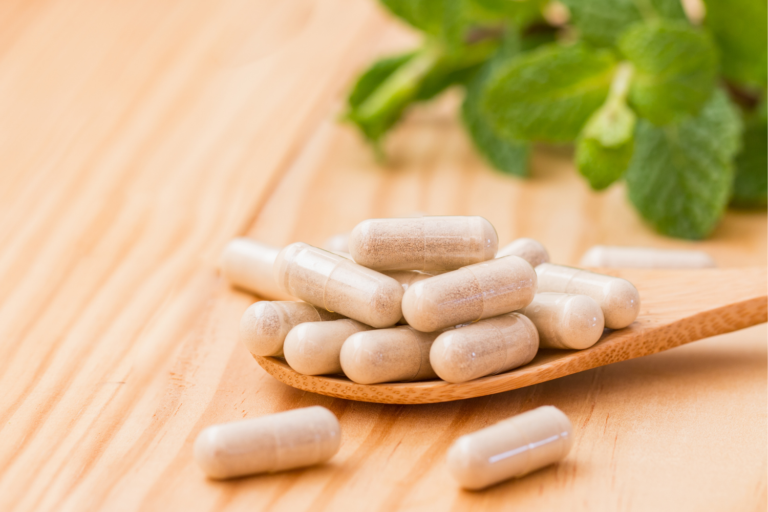Choosing the right supplement manufacturer can directly impact your brand’s reputation, adherence to FDA regulatory standards, and ability to deliver a high-quality finished product to consumers. In the dietary supplement industry, failure to vet your manufacturing partner properly can lead to setbacks in production, safety standard violations, and costly reformulations.
Asking the right questions to ask supplement manufacturer candidates allows you to assess their quality standards, understand their manufacturing process, and confirm their capabilities in handling custom formulations, raw materials, and regulatory requirements. This article provides a focused checklist for startups entering the nutritional supplement market, offering clarity and confidence when selecting a private-label manufacturer to produce and deliver supplements that meet business and industry demands.
What Should You Know Before You Start Asking Questions?
Research the company’s history and online presence to understand its background clearly. Check the website, reviews, and news about supplement manufacturers to confirm adherence to FDA regulations, GMP certification, and quality standards. Learn how they manage raw materials, production, and packaging for dietary supplements like chewable tablets, capsules, and powders.
Know your brand values, budget, and non-negotiables. Determine if you need a private label manufacturer or require custom formulations. Identify if you want the highest quality ingredients and a reliable manufacturing process that meets regulatory requirements, ensuring the final product aligns with your business goals.

Question 1 – How Long Have You Been in the Supplement Industry?
Understanding how long a manufacturer has operated in the dietary supplement industry can help you assess their stability, technical expertise, and long-term commitment to producing compliant, high-quality products. Ask how long they’ve been manufacturing supplements like vitamin C, minerals, herbs, and other nutritional supplements. Look for specific examples of how they’ve adapted to changes in FDA regulations, improved their manufacturing process, or expanded their facilities to meet increased demand. Companies with a long, consistent history typically have well-developed systems for sourcing raw materials, maintaining GMP certification, and delivering private-label products that meet strict quality standards.
Watch for vague or inconsistent answers about the company’s past. An established supplement manufacturer should be able to outline their timeline clearly, highlight milestones in facility upgrades or certifications, and share how they ensure safety standards across every finished product. Avoid manufacturers that cannot explain their background in detail or skip over essential topics like production, formulation, or their ability to scale. A lack of transparency may indicate challenges in maintaining quality control, following regulatory requirements, or handling custom formulas and large quantity orders for growing brands.
Question 2 – Who Owns the Manufacturing Company and What’s Their Background?
Ask about the ownership structure to understand leadership transparency and its impact on services offered and overall quality. Knowing if the company is family-owned, investor-owned, or corporate-owned helps you determine how decisions are made about production, packaging, and delivery methods and whether the business can consistently produce dietary supplement products that meet stringent FDA regulations and safety standards.
| Ownership Type | Advantages | Potential Drawbacks |
|---|---|---|
| Family-Owned | Often shows personal commitment and a long history with quality standards. | May have limited scale and additional space for large orders. |
| Investor-Owned | Typically brings more capital and resources for innovative production. | Focus on cost efficiency might lead to less transparency in processes. |
| Corporate-Owned | Offers strong resources, large-scale production, and advanced facilities. | May be less flexible with custom formulations and specific delivery methods. |
Question 3 – Can You Share Proof of Compliance and Certifications?
Ask the supplement manufacturer to provide documented proof of compliance with current FDA regulations and industry certifications. These certifications validate that their facilities, manufacturing processes, and quality control systems follow recognized standards to support consistent production practices. Verifying compliance also helps ensure that the dietary ingredients, from vitamins and minerals to herbs and custom formulations, are processed using approved methods and meet legal requirements.
Proper certifications also protect your brand by demonstrating the manufacturer’s commitment to using the highest quality ingredients, adhering to regulatory requirements, and maintaining the integrity of your finished product from production to shipment. This is essential for businesses launching private label products, as certification directly affects your ability to market to health-conscious consumers and meet retailer demands.
Key Certifications to Ask For:
- FDA cGMP Certification: Indicates that the manufacturer has been evaluated by an independent organization for compliance with FDA’s Good Manufacturing Practice guidelines, ensuring consistent quality standards, accurate labeling, and proper handling of raw materials and substances.
- NSF Certification: Offers third-party validation of safety standards, ensuring manufacturers use clean, properly tested facilities and follow strict ingredient sourcing protocols.
- ISO Certification (e.g., ISO 9001): Demonstrates a standardized manufacturing process that improves traceability, batch-to-batch consistency, and overall process reliability for capsules, tablets, and powders.
- Organic and Other Certifications: Ask if they hold USDA Organic, Non-GMO, or Halal certifications, depending on your target market and diet claims. These can enhance your product’s appeal and provide an additional layer of consumer trust.

Question 4 – What Does Your Quality Control Process Look Like?
Ask if the supplement manufacturer uses internal testing, third-party labs, or a combination of both. Internal testing helps monitor quality throughout the manufacturing process, while third-party testing provides independent validation that the dietary ingredients meet FDA regulations and industry safety standards. This is especially important for custom formulations, vitamins, and specialized delivery methods like chewable tablets, capsules, or powders.
Also, confirm how they maintain batch-to-batch consistency. Manufacturers should track each finished product, from raw substances to packaging, and have clear procedures in place if a batch fails testing. Ask how they isolate and investigate quality issues and how quickly they can respond before shipment. This level of control protects your brand, ensures consumer trust, and helps keep your private-label products aligned with key regulatory standards.
Question 5 – How Do You Handle Product Recalls or Quality Complaints?
A trusted supplement manufacturer should have systems in place to trace each dietary supplement from raw materials to the final product. Ask how they track ingredients, lot numbers, and packaging details. Efficient traceability is key for quickly managing product recalls or quality concerns and protecting your business and customers.
Additionally, ask how they handle quality complaints. Look for signs of accountability—do they openly discuss past issues and how they resolved them? A responsible partner will have documented procedures for identifying problems, notifying clients, and correcting the issue while staying aligned with FDA and GMP certification requirements. Weak or vague answers may indicate poor quality control and risk to your brand’s reputation in the dietary supplement industry.
Question 6 – Can You Provide Client References or Testimonials?
Request client testimonials that speak to the company’s ability to consistently deliver high-quality ingredients, manage tight timelines, and navigate compliance challenges. Look for details like how long the partnership has lasted, whether the company helped scale production, and how they addressed fulfillment or formulation issues.
If a manufacturer avoids sharing references or only gives generic reviews, it could signal a lack of strong client relationships or limited experience. Good manufacturers are willing to share success stories that reflect their ability to consistently meet quality standards and deliver well-formulated products, including vitamin C, herbs, and weight loss formulas. Solid testimonials can help you determine if they’re the right partner to deliver your private label brand to market.
Question 7 – What Kind of Support Will I Get as a Small or New Brand?
Ask if the manufacturer has a dedicated account management or customer support team to help new brands through the production and formulation process. A responsive support structure can assist with everything from choosing the correct delivery methods to understanding certifications, adjusting quantity needs, and managing shipment timelines.
Furthermore, consider scalability. Your chosen private label manufacturer should have the facilities, staff, and additional space to grow alongside your brand. Ask about their current capacity and how they support other clients as they scale. Manufacturers that serve both startups and established companies will be better equipped to guide you through the full supply chain journey—from concept to finished product—without compromising quality as demand increases.
Choose a Manufacturer Who Welcomes Your Questions
A strong supplement manufacturer won’t just tolerate your questions—they’ll expect them. The ability to clearly explain their services, manufacturing process, and compliance steps shows they’re serious about safety, quality, and transparency. Use this list as a guide before your discovery call, and don’t hesitate to print or bookmark it. It’s designed to help you confidently enter the dietary supplement industry, whether you’re launching private-label products or scaling an existing brand. If they dodge your questions, they’re not your partner. A reliable supplement manufacturer will prioritize your business goals, support your customers’ confidence in your brand and product quality, and deliver finished products that meet the highest industry standards.
Frequently Asked Questions
What are the most important questions to ask a supplement manufacturer?
Ask about certifications, experience, ownership, support, and quality control.
How do I know if a supplement manufacturer is trustworthy?
Check reviews, certifications, transparency, and their willingness to answer key questions.
Should I choose a manufacturer based on price?
No—price is important, but quality, compliance, and reliability matter more in the long term.
What documents should a supplement manufacturer provide?
They should provide cGMP certifications, product testing reports, and SOPs.
How do I build a strong relationship with my manufacturer?
Be clear about your expectations, communicate regularly, and treat them as partners.
References
- Federal Trade Commission. (2014). Gut Check: A Reference Guide for Media on Spotting False Weight Loss Claims. https://www.ftc.gov/business-guidance/resources/gut-check-reference-guide-media-spotting-false-weight-loss-claims
- National Institutes of Health – Office of Dietary Supplements. (2023). Dietary Supplements: What You Need to Know. https://ods.od.nih.gov/factsheets/WYNTK-Consumer/
- U.S. Department of Commerce. (2024). Fact Sheet: Department of Commerce Announces New Actions on Supply Chain Resilience. https://www.commerce.gov/news/fact-sheets/2024/09/fact-sheet-department-commerce-announces-new-actions-supply-chain
- U.S. Food and Drug Administration. (2024). Current Good Manufacturing Practices (CGMPs) for Food and Dietary Supplements. https://www.fda.gov/food/guidance-regulation-food-and-dietary-supplements/current-good-manufacturing-practices-cgmps-food-and-dietary-supplements
- U.S. Food and Drug Administration. (2024). Dietary Supplements. https://www.fda.gov/food/dietary-supplements
- U.S. Food and Drug Administration. (2025). Guidance Documents & Regulatory Information by Topic (Food and Dietary Supplements). https://www.fda.gov/food/guidance-regulation-food-and-dietary-supplements/guidance-documents-regulatory-information-topic-food-and-dietary-supplements
- U.S. Food and Drug Administration. (2025). Recalls, Market Withdrawals, & Safety Alerts. https://www.fda.gov/safety/recalls-market-withdrawals-safety-alerts
- U.S. Food and Drug Administration. (2018). Small Entity Compliance Guide: Current Good Manufacturing Practice in Manufacturing, Packaging, Labeling, or Holding Operations for Dietary Supplements. https://www.fda.gov/regulatory-information/search-fda-guidance-documents/small-entity-compliance-guide-current-good-manufacturing-practice-manufacturing-packaging-labeling
- U.S. Government Accountability Office. (2009). Dietary supplements: FDA Should Take Further Actions to Improve Oversight and Consumer Understanding. https://www.gao.gov/products/gao-09-250



